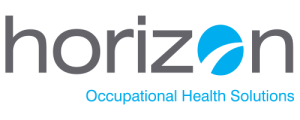
Q) HOW DID YOUR FIRST JOB AFFECT THE COURSE OF YOUR CAREER?
My first health related job was in a human kinetics research laboratory at Memorial University, Newfoundland and Labrador. My responsibilities were to help the grad students with study participant preparations, run neuromuscular testing and statistical analysis. In fact, it’s this very job that set me on the path of academic research in the field of health and human performance!
The research techniques that I learned there led me to contribute towards “Effect of Acute Static Stretching on Force, Balance, Reaction Time, and Movement Time”, a piece that was published in the academic journal Medicine & Science in Sports & Exercise. Of all of my 26 peer-reviewed publications to date, it is still the most read and cited. I think it’s safe to say that my first job changed the very course of my career and my life.
Q) WHY DID YOU DECIDE TO SPECIALIZE IN OBESITY, DIABETES AND EXERCISE PHYSIOLOGY?
After completing my master’s degree, I had acquired a much greater understanding of human physiology but I still felt a lack of understanding for human endocrinology and genetics. As if somehow, I hadn’t gone far enough down the rabbit hole! By the fall of 2009 I had won the Alexander Graham Bell PhD Scholarship and started work with and Dr. Guang Sun at Memorial University exploring the association of endocrinology and genetics with obesity and obesity-related comorbidities such as diabetes and cardiovascular disease.
The 2500+ blood samples and high-resolution body composition measurements taken for the study allowed us to address important questions facing adult and childhood obesity. To date, over 65% of Canadians, and 75% of Newfoundlanders and Labradoreans, are overweight/obese.
In short, I decided to specialize in these areas to try and help make a difference in the health and well-being of those suffering with body weight management and the subsequent chronic diseases. This work now means so much to me that I vowed to find a way to stay in my home province to continue this work!
Q) WHAT IS IT ABOUT OCCUPATIONAL HEALTH THAT YOU FIND INTERESTING?
Occupational health is an extremely important component of our overall public health and has opened up an entirely new avenue for my research. Coming to understand the significant impact that occupations have on our mental and physical well-being has become a very important aspect of my journey in the category of obesity and chronic disease management.
I have come to believe that our occupations are a significant contributor to development of obesity in Canada. From low physically demanding occupations in an office, to high physically demanding occupations on a remote oil and gas installation, a person’s health can often be equally negatively affected. Through the execution of my research within the occupational health context, I have been able to discover a number of unique ways to help the general population while also increasing the health and safety of our client organizations. I truly believe that the occupational health and wellness movement could very well be a key to helping reduce obesity and obesity-related diseases in our country.
Q) WHAT RECOMMENDATIONS DO YOU OFTEN GIVE TO CORPORATE CUSTOMERS?
The most significant recommendation that I give corporate employers is to take the health and wellness of employees very seriously. As I mentioned earlier, the consequences of employing physically unfit individuals for a physically demanding job can be detrimental in to both human and economic costs. It’s very often said that even one person can make a difference, so imagine the impact that can be made when an entire company decides to foster a culture of health and well-being.
